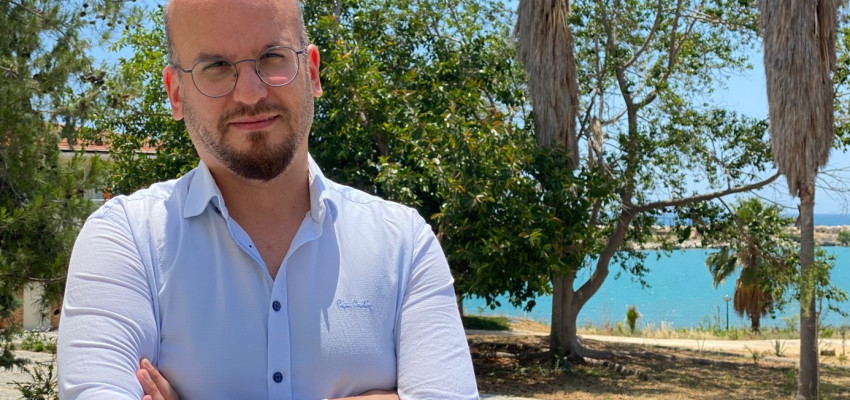The ERC Support for the TÜBA Young Academy Member Assoc. Prof. Dr. Mustafa Yücel's Project.
The European Research Council has granted funding to the DeepTrace project (Consolidator Grant - ERC) of Assoc. Prof. Dr. Mustafa Yücel, faculty member at the Institute of Marine Sciences at METU and a TUBA Young Academy member.
ERC Consolidator project DeepTrace aims at tracing nanoparticle-fuelled co-mobilization of catalyst metals across Earth's deep-sea redox interfaces to pave the way for habitability detection in Ocean Worlds. DeepTrace project will be implemented in the next 5 years under the direction of Dr Yücel, It will advance a ground-breaking understanding of how the life-supporting metals cycle across Earth's deep-sea ecosystems such as the Black Sea and hydrothermal vents, developing the application of metal nanoparticles as tracers of planetary redox habitability and bridging the study of Earth's Oceans with the Ocean Worlds of the Solar system.
Redox metals such as Fe, Mo, V, Ni, Cu and Mn, supplied from deep-sea interfaces, played a pivotal role in the coupled evolution of Earth's biogeochemical cycles and life. Accordingly, future search for life in Ocean Worlds of the Solar System will greatly benefit from going beyond parameters such as water and organics and being able to detect signs of subsurface metal catalysis. As fundamental metabolism requires metal clusters and nanoparticles; their formation, detection and link to Earth’s Ocean biogeochemical structure can pave the way for inference of metal catalysis from plume ejecta compositions of Ocean Worlds such as Europa and Enceladus. DeepTrace will advance a ground-breaking mechanistic, analytical, and predictive framework on the nanoparticle-fueled co-mobilization of catalyst metals across Earth's marine redox interfaces. The key idea is to establish the concept of sub-ocean metal redox catalysis underpinning the ecosystem evolution of Earth’s oceans and use it to explore habitability of Ocean Worlds. DeepTrace team will conduct multidisciplinary sea expeditions to unravel how the six redox metals co-mobilize by studying Earth analogues such as deep-sea hydrothermal vents and suboxic/anoxic seas. Integrating state-of-the-art methods with emerging innovative approaches such as time-of-flight single-particle-inductively coupled plasma mass spectrometry, Yücel and his team will advance the multi-element detection of nanoparticles. Finally, to build a predictive framework that will enable the estimation of nanoparticle fluxes from deep-sea boundaries and inferring the metabolic potential of Ocean Worlds, novel biogeochemical models will be developed.


